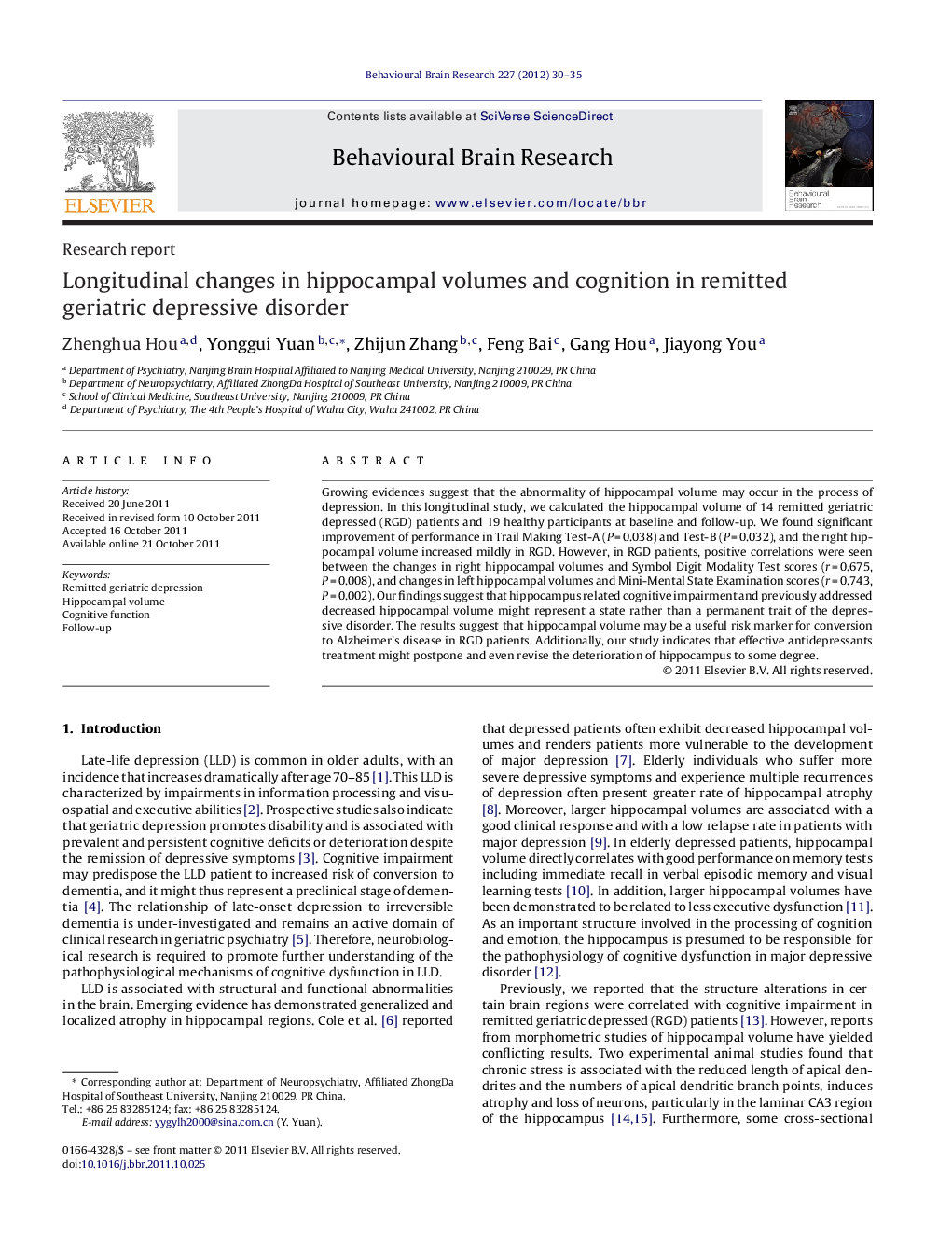| Article ID | Journal | Published Year | Pages | File Type |
|---|---|---|---|---|
| 4313382 | Behavioural Brain Research | 2012 | 6 Pages |
Growing evidences suggest that the abnormality of hippocampal volume may occur in the process of depression. In this longitudinal study, we calculated the hippocampal volume of 14 remitted geriatric depressed (RGD) patients and 19 healthy participants at baseline and follow-up. We found significant improvement of performance in Trail Making Test-A (P = 0.038) and Test-B (P = 0.032), and the right hippocampal volume increased mildly in RGD. However, in RGD patients, positive correlations were seen between the changes in right hippocampal volumes and Symbol Digit Modality Test scores (r = 0.675, P = 0.008), and changes in left hippocampal volumes and Mini-Mental State Examination scores (r = 0.743, P = 0.002). Our findings suggest that hippocampus related cognitive impairment and previously addressed decreased hippocampal volume might represent a state rather than a permanent trait of the depressive disorder. The results suggest that hippocampal volume may be a useful risk marker for conversion to Alzheimer's disease in RGD patients. Additionally, our study indicates that effective antidepressants treatment might postpone and even revise the deterioration of hippocampus to some degree.
► In this longitudinal study, we calculated the hippocampal volume of 14 remitted geriatric depressed (RGD) patients and 19 healthy participants at baseline and follow-up. ► We found significant improvement of performance in Trail Making Test-A (P = 0.038) and Test-B (P = 0.032), and the right hippocampal volume increased mildly in RDG. ► Positive correlations were seen between the changes in right hippocampal volumes and SDMT scores (r = 0.675, P = 0.008), and changes in left hippocampal volumes and MMSE scores (r = 0.743, P = 0.002).
